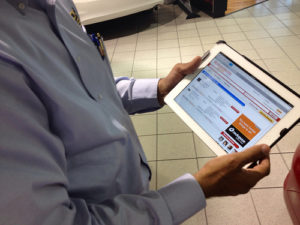 Mind your insurance when buying or selling a car
Mind your insurance when buying or selling a car
Many people have just enough knowledge to be dangerous when it comes to insuring a new car. Some have heard that a new car is automatically covered on an existing policy and either wait for a long time before notifying the insurance company or not adding the new vehicle information at all (read more here). In many cases, a loss would not be covered.
The “automatically covered” clause in most state’s insurance rules typically only will cover
for a few days to a week. And often it is accompanied by wording that suggests if you drag your feet on contacting your insurer, you will be uninsured.
As a Buyer
Covering your financial protection should be part of the auto purchasing process. In fact, if you obtain the Vehicle Identification Number (VIN) prior to making the purchase, you can add the new car to your policy before getting behind the wheel.
Even if you have automatic coverage for a few days, there is no wisdom for relying on that for coverage rather than just taking care of it right away. The “automatic” coverage transfer should be reserved for impromptu car purchases at night or on a weekend if you don’t have 24/7 customer service through your insurance company.
Because most top insurers are available more than not, you really don’t have the excuse to not have the vehicle covered before you drive away. These “automatically” covered rules were made when most agents worked a 9-5 Monday through Friday schedule and if someone bought a car on Saturday, they couldn’t do anything with their insurance until Monday. This just isn’t the case any more.
Another good reason to ensure that you are properly covered on a new vehicle is that your new car will likely be of a higher value than your current vehicle. If your old vehicle didn’t have collision or comprehensive coverage at all, your new vehicle will not be automatically covered for physical damage at all, even if your state and insurance company has an “automatic” coverage option.
If you happen to buy a $20,000 car with a loan, go out and total it, and you have no physical damage protection, you will be on the hook to pay for every cent left on that loan and you will just be without a car.
As a Seller
If you are selling a car privately, you will want to protect yourself and make sure that the person you are selling the car to can provide you with proof of insurance before you hand over the keys even if they did give you cash for the car. Until the title is officially transferred through the DMV and the vehicle is officially in the name of the buyer, you will be ultimately responsible for injuries or damage. If the person who bought your car doesn’t get insurance or go to the DMV right away to make the transfer, they could be drinking and driving and kill someone, abandon the car, and law enforcement will be knocking on your door to find out why your vehicle was involved in an accident and you ran off.
Don’t be duped into thinking that you are automatically covered. Make sure you do the right thing for protection and ensure the vehicle is properly covered before driving it.
Image: Flickr.